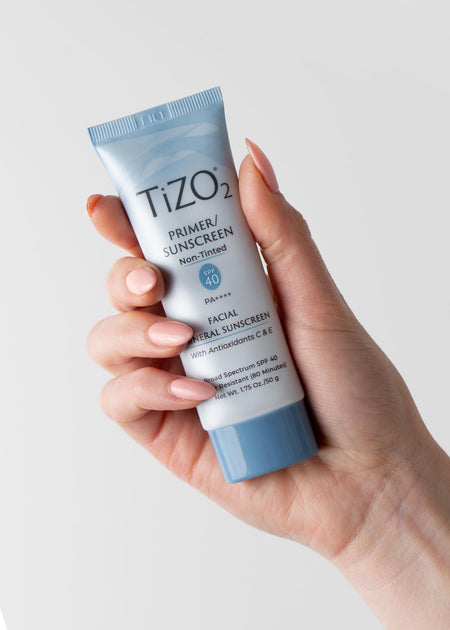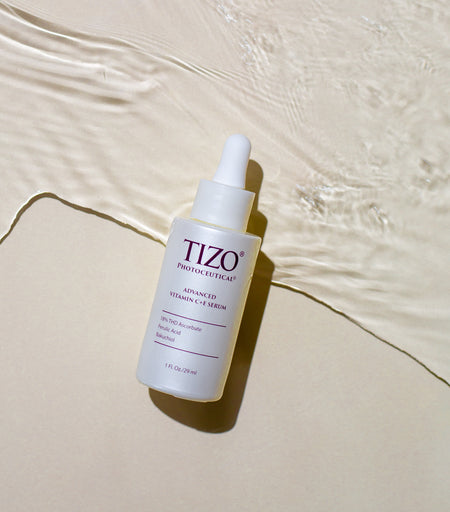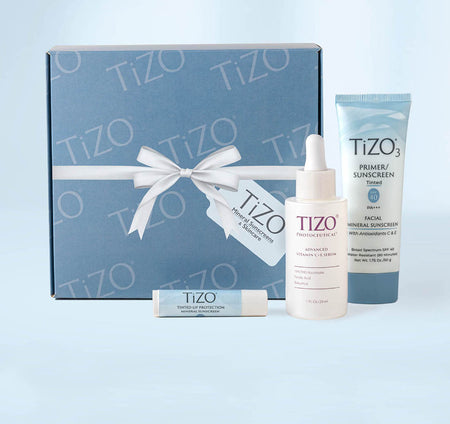
You protect your skin from the sun, ensure that you remove makeup and oil from it each night, and do everything you can to keep it youthful and glowing. But did you know that there’s another major factor in your environment that can have negative effects on the health of your skin? Air pollution is often thought of as a city lifestyle issue, but with the prevalence of wildfires and even toxic gas emitting from the ozone, air pollution may be affecting your skin.
What is Air Pollution?
Air pollution is the contamination of the air by harmful substances, such as gases, particulate matter, and biological materials. These substances can come from natural sources, such as volcanoes and forest fires, or from human activities, such as cigarette smoke, airplane fuel, and vehicle emissions.
What types of pollution affect skin?
According to the Journal of the European Academy of Dermatology and Venereology, there are many types of pollution that can affect your skin, including:
- Particulate Matter (PM): This is a mixture of solid particles and liquid droplets that can be suspended in the air. Particulate Matter includes smoke, dust, dirt, and soot and can come from a variety of sources, including car exhaust, power plants, and construction sites. While some of these pollutants are visible, others are made up of tiny particles that can penetrate the skin and cause inflammation.
- Nitrogen Oxides (NOx): These gases are formed when fossil fuels are burned at high temperatures. NOx can contribute to smog formation and acid rain. These pollutants can damage the skin's natural barrier, making it more susceptible to infection.
- Volatile Organic Compounds (VOCs): The pollutants can react with sunlight to form free radicals, which can damage skin cells. These pollutants can react with sunlight to form free radicals, which increases oxidative stress and can damage skin cells.
- Ozone (O3): This can is formed when NOx and Volatile Organic Compounds react in the presence of sunlight. This pollutant can also damage the skin's natural barrier and cause inflammation.
How does pollution affect skin?
According to the International Journal of Women’s Dermatology, studies show that pollutants enter the skin via accumulation on the skin surface, absorption through hair follicles, and inhalation, among other methods. When skin is exposed to pollution, free radicals are created, which cause the skin cells to move into a state of oxidative stress by overwhelming the skin’ natural supply of antioxidants. The effects of air pollution on skin are extensive and significant, including:
- Premature aging: Pollution can accelerate the breakdown of collagen and elastin, which can lead to wrinkles, sagging, and age spots.
- Acne: Pollution can clog pores and lead to acne breakouts.
- Dryness and irritation: Pollution can strip the skin of its natural oils, leaving it feeling dry and irritated.
- Allergic reactions: Pollution can trigger allergic reactions in people with sensitive skin.
- Skin cancer: Studies have shown that pollution exposure can be a contributing factor in skin cancer.
What are the best ingredients to protect against pollution damage?
Antioxidants/Vitamins
Antioxidants protect the skin against the damaging effects of free radicals. Therefore, incorporating ingredients like Vitamin C and Vitamin E into your skincare routine are a great way to help protect against the effects of pollution on your skin.
The ideal sunscreen should also contain antioxidants, as they reduce the damaging effects of Reactive Oxygen Species, which consist of both free radicals and non-free radical oxygen.
Hyaluronic Acid, Glycerin & Ceramides
When your skin is moisturized, the skin barrier is more supported, making it more difficult for pollution to penetrate into the skin. Look for products with moisturizing properties, like hyaluronic acid, glycerin, and ceramides.
Hyaluronic Acid is a water-binding molecule found naturally in the skin. When used in skincare, it helps lock in moisture to help restore hydration and smooth the appearance of fine lines and wrinkles.
Glycerin is a humectant; a moisturizing ingredient that draws moisture to the skin.
Ceramides help restore the skin’s lipid layer and retain the moisture balance for the skin, promoting overall skin health.
Dimethicone
Dimethicone is great for creating a physical protective barrier on the skin, which helps to prevent pollution from getting into the skin. It also helps decrease the loss of moisture, which makes it more difficult for pollution to penetrate the skin.
How to protect skin from pollution with TiZO
At TiZO, we recognize that UV exposure and pollution exposure go hand in hand, and we have created products that specifically address the skin concerns of both. Here is a simple routine that you can use to help protect your skin from environmental stressors.
Cleanse
TiZO Foaming Cleanser effectively removes makeup, pollution, and particulate matter as well as other products from the skin, leaving it feeling refreshed and clean without being stripped of essential oils. Formulated with niacinamide, glycerin, and cucumber fruit extract, this gentle foaming cleanser is also pH balanced to be gentle on all skin types. We suggest doing a double cleanse, particularly at night, to remove any makeup, dirt, and oil from the skin, as well as pollution and particulate matter.
Free Radical Protection
TiZO Advanced Vitamin C + E Serum is designed to recharge your skin’ supply of vital reparative antioxidants to help knock out free radicals before they show up as photodamage. This serum reveals your natural radiance with a multifaceted approach to anti-aging, pairing a trio of powerful antioxidants – Vitamin C, Vitamin E, and Ferulic Acid – with plant-derived Bakuchiol in a non-irritating transparent liquid serum with a light citrus scent.
Moisturize

TiZO Daily Moisture is an ultralight cream that hydrates and conditions the skin, leaving it feeling smooth and soft. This face moisturizer with hyaluronic acid, bisabolol, and glycerin helps achieve a more supple, dewy complexion. Perfect for morning and evening use, this soothing formula is also excellent post-procedure and after sun exposure.
Barrier Protection
TiZO Soothing Skin Protectant is a calming emulsion with a velvety texture that works to improve skin’s texture and hydration and helps protect skin from the drying and irritating effects of wind and cold weather. It also helps to protect the skin barrier from environmental pollutants, irritants, and particulate matter.
Mineral (Physical) Sun Protection
Did you know that some pollutants are activated by UV light? A mineral sunscreen provides a physical barrier against both UV rays and pollution. Choose from many TiZO all-mineral sunscreens that have also been formulated with Antioxidants Vitamin C and Vitamin E to help combat free radicals, including:
- TiZO3 Tinted SPF 40
- AM Replenish Lightly Tinted SPF 40
- AM Replenish Non-Tinted SPF 40
- TiZO2 Non-Tinted SPF 40
- Ultra Zinc Tinted SPF 40
- Ultra Zinc Non-Tinted SPF 40
- Mineral Sun Defense Tinted SPF 50
By taking these steps, you can help protect your skin from the harmful effects of pollution and help keep your skin healthy and looking its best, even in polluted environments.
Sources
https://www.ncbi.nlm.nih.gov/pmc/articles/PMC6766865/
Tagged:





0 comments